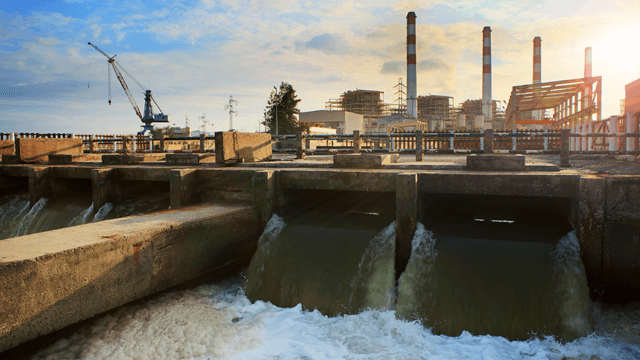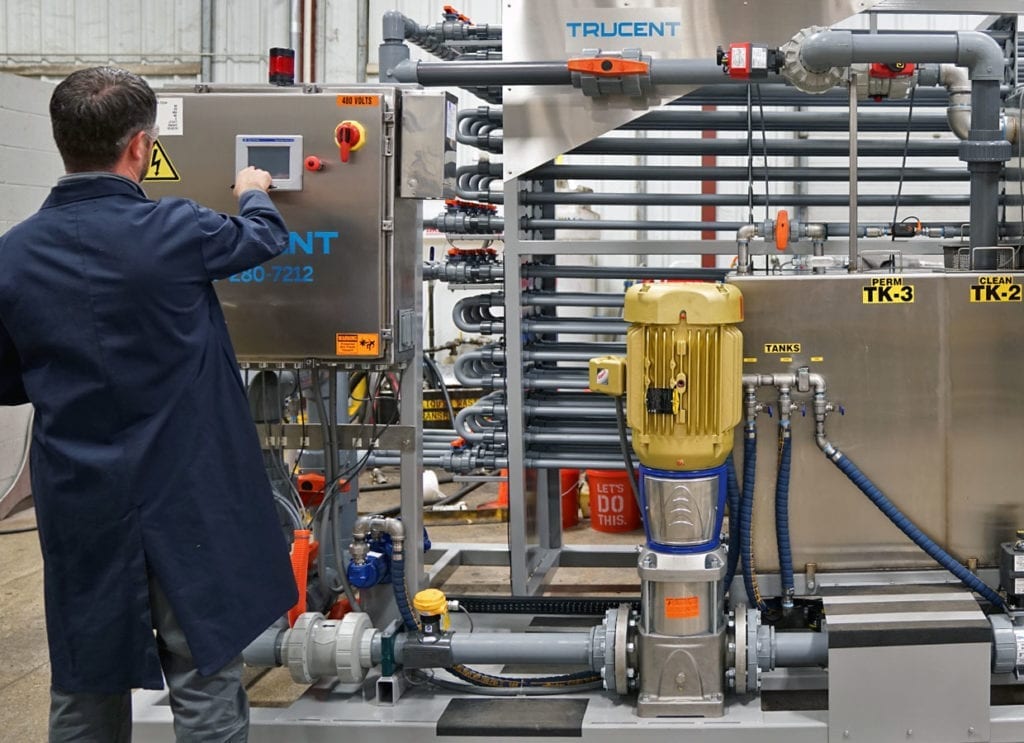Industrial Waste Water Treatment-- Comprehensive Equipments for Wastewater Disposal
Industrial Waste Water Treatment-- Comprehensive Equipments for Wastewater Disposal
Blog Article
The Function of Hazardous Waste Water Treatment in Environmental Management
The reliable treatment of commercial wastewater is progressively identified as a keystone of environmental management, offering to mitigate the destructive impacts of toxins on marine environments. As markets expand and advance, the need for durable wastewater administration options comes to be critical to make certain conformity with environmental laws and advertise sustainable techniques. This requires a better assessment of the treatment refines utilized and their effects for both ecological health and source healing. Understanding these characteristics raises critical inquiries concerning the balance in between industrial development and environmental integrity, motivating further expedition of the paths onward.
Relevance of Waste Water Treatment
The value of wastewater therapy can not be overstated, as it plays an important duty in protecting public wellness and the atmosphere (Industrial Waste Water Treatment). Efficient wastewater therapy systems are vital for getting rid of contaminants from industrial discharge, thus protecting against harmful compounds from going into all-natural water bodies. This process reduces the threat of waterborne conditions, which can emerge from untreated wastewater, and safeguards area health and wellness
Furthermore, treated wastewater can be safely reused in different applications, such as irrigation and industrial processes, promoting sustainable water management practices. By recycling water, sectors can significantly lower their freshwater consumption, contributing to source preservation.
Along with health benefits, wastewater therapy is essential for preserving water ecological communities. Pollutants in neglected wastewater can cause the destruction of water quality, harming aquatic life and interrupting environmental equilibriums. By dealing with wastewater prior to discharge, sectors help maintain the integrity of local environments and advertise biodiversity.
In addition, governing conformity is a vital aspect of wastewater management. Sticking to established environmental standards not only avoids legal repercussions but also enhances a company's credibility as a responsible corporate citizen. Fundamentally, reliable wastewater therapy is crucial for guarding public wellness, shielding the atmosphere, and promoting sustainable commercial techniques.

Resources of Hazardous Waste Water
Industrial wastewater originates from a selection of sources, each adding to the intricacy of therapy processes. Primarily, these resources consist of manufacturing facilities, refineries, and processing plants, which produce effluents as a result of their operations. Industries such as textiles, pharmaceuticals, food and drink, and petrochemicals create substantial quantities of wastewater, frequently laden with pollutants consisting of hefty steels, natural substances, and nutrients.
In addition to manufacturing, agricultural activities add to industrial wastewater with overflow and effluent from livestock operations and plant handling. The meat and dairy products sectors, in certain, are recognized for launching high degrees of biochemical oxygen need (FIGURE) and virus.
In addition, mining and mineral handling tasks generate wastewater having put on hold solids and unsafe chemicals. Power generation plants, especially those utilizing nonrenewable fuel sources, additionally add wastewater via cooling down systems and chemical cleaning processes.
Each of these sources presents unique obstacles pertaining to the make-up and quantity of wastewater produced, requiring tailored therapy remedies to minimize their ecological effect. Understanding the varied beginnings of industrial wastewater is important for developing effective monitoring methods focused on protecting water sources and advertising sustainable commercial techniques.
Treatment Processes and Technologies
Reliable therapy processes and modern technologies are critical for handling industrial wastewater and minimizing its ecological impact. Various approaches are employed to remove impurities, adjust to different wastewater features, and adhere to regulatory criteria.
Physical treatment processes, such as sedimentation and filtering, facilitate the elimination of put on hold solids. These methods are typically utilized as preliminary actions to decrease the lots on succeeding therapy phases. Chemical therapy, consisting of flocculation, coagulation, and neutralization, addresses liquified toxins by changing their chemical residential properties, making them much easier to separate from water.
Organic therapy technologies, such as activated sludge systems and biofilters, utilize microorganisms to break down raw material and nutrients. These approaches are especially effective for eco-friendly waste streams, promoting the natural decay process. Advanced therapy modern technologies, such as membrane filtration and advanced oxidation processes, offer improved removal effectiveness for tough contaminants, consisting of heavy metals and relentless natural substances.
Each of these treatment processes can be configured in various mixes to develop tailored solutions that satisfy certain commercial requirements. The option of modern technology depends on factors such as the type of wastewater, desired therapy end results, and financial factors to consider, making certain that industries can run sustainably while minimizing their ecological footprint.
Ecological Benefits
Executing durable wastewater treatment refines not only guarantees conformity with governing criteria but likewise produces substantial ecological advantages. Efficient therapy of industrial wastewater lowers advice the discharge of dangerous toxins into all-natural water bodies, thereby securing water ecological communities. By eliminating hazardous materials, hefty steels, and microorganisms, these procedures help keep biodiversity and promote much healthier communities.
In addition, treated wastewater can be repurposed for various applications, including irrigation and industrial processes, decreasing the demand for freshwater resources. This reuse not just saves water but additionally reduces the stress on local water products, which is particularly critical in water-scarce regions.
Moreover, reliable wastewater treatment mitigates the danger of soil and groundwater contamination, making sure the stability of local settings. Industrial Waste Water Treatment. By preventing the infiltration of harmful materials, industries add to the Web Site overall health of bordering environments and areas, improving public depend on and promoting sustainable industrial practices
Regulative Structure and Compliance
A detailed regulative structure controls the therapy of industrial wastewater, making certain that industries comply with rigid conformity criteria. Various national and local guidelines, such as the Clean Water Act in the USA, set forth limits on the discharge of pollutants into water bodies. These policies are designed to secure water ecosystems and public health and wellness by mandating that sectors apply ideal therapy modern technologies.
Compliance with these policies typically involves obtaining permits, performing normal monitoring, and reporting discharge degrees to regulatory authorities. Failing to comply can lead to significant penalties, consisting of fines and operational constraints, consequently incentivizing sectors to embrace best methods in wastewater management.
In addition to governmental laws, many sectors likewise follow volunteer requirements and certifications, such as ISO 14001, which promote sustainable environmental monitoring techniques. Stakeholders are significantly advocating for boosted openness and accountability in wastewater monitoring, pushing for more stringent enforcement and even more extensive reporting demands.
Ultimately, a robust governing structure not only offers to mitigate environmental threats however also fosters a culture of sustainability within the commercial market, motivating continual renovation in wastewater therapy processes.
Verdict

The effective therapy of industrial wastewater is increasingly identified as a foundation of environmental defense, serving to minimize the damaging impacts of toxins on water ecosystems. Efficient wastewater treatment Click Here systems are crucial for eliminating impurities from industrial discharge, thereby stopping hazardous materials from entering all-natural water bodies.Industrial wastewater originates from a range of sources, each contributing to the intricacy of treatment procedures. Effective treatment of commercial wastewater decreases the discharge of unsafe contaminants right into all-natural water bodies, thus shielding marine ecological communities.In final thought, commercial wastewater therapy is important for guarding environmental stability and advertising sustainable water administration.
Report this page